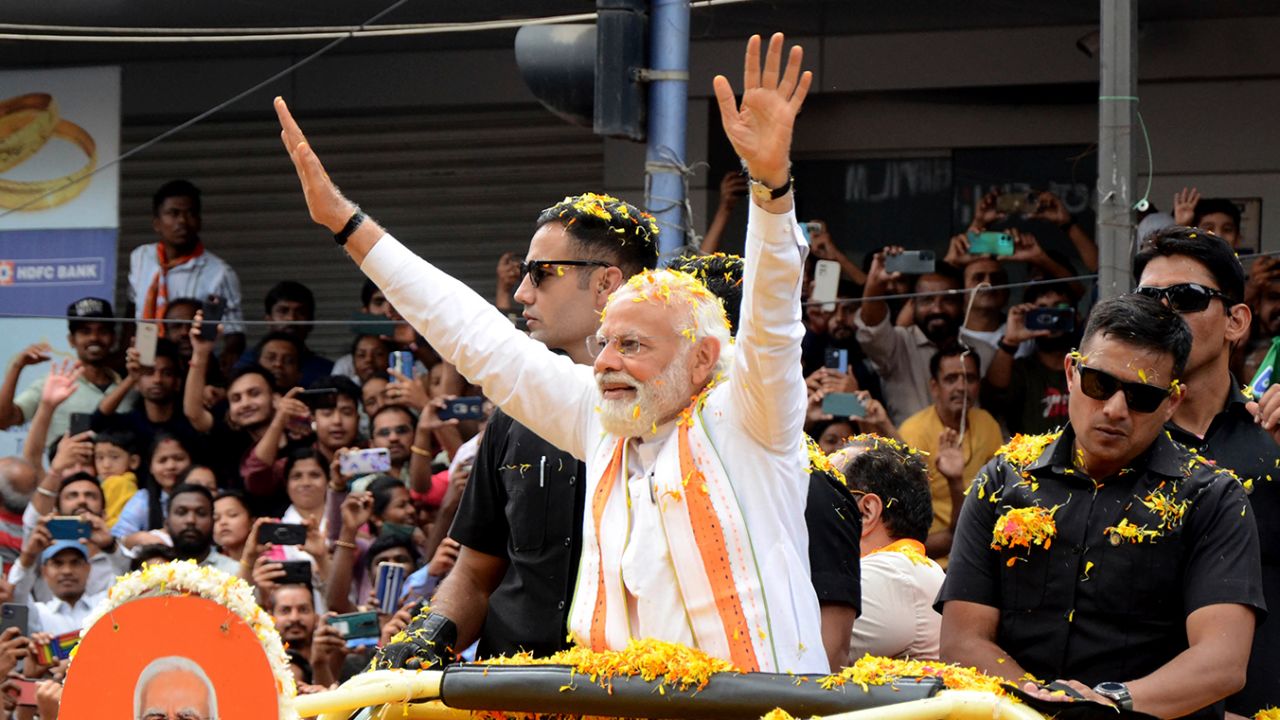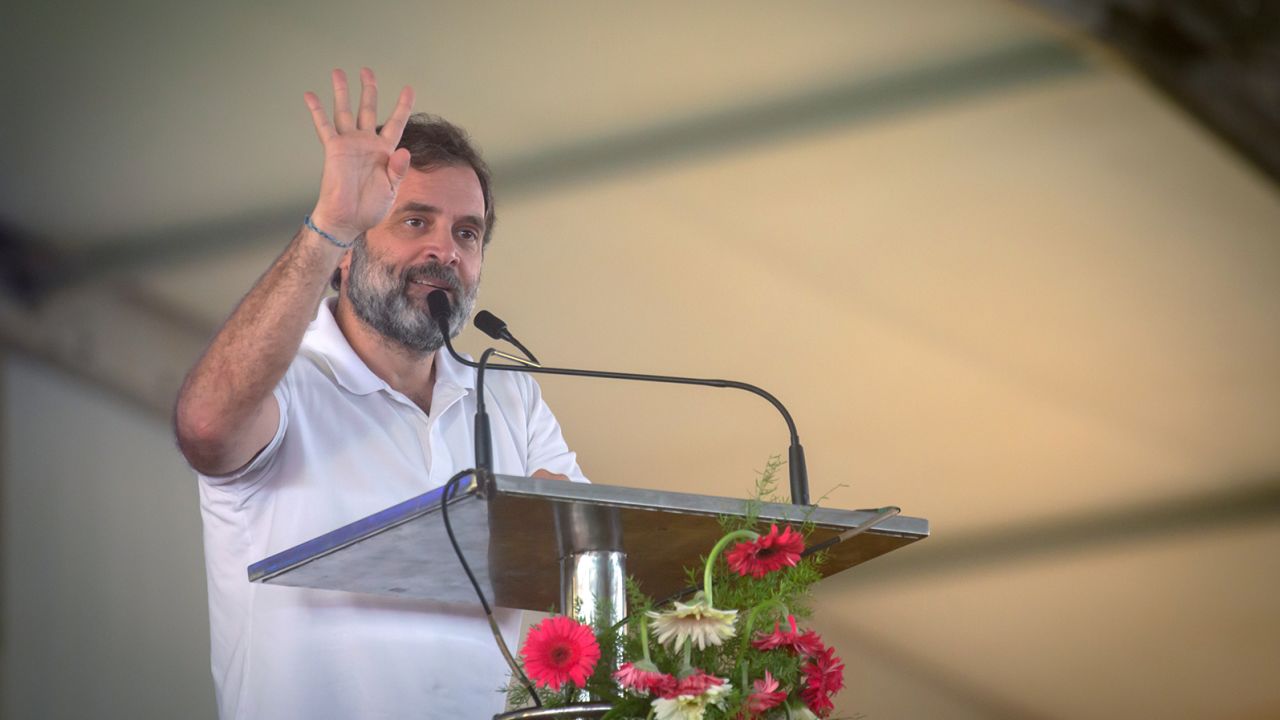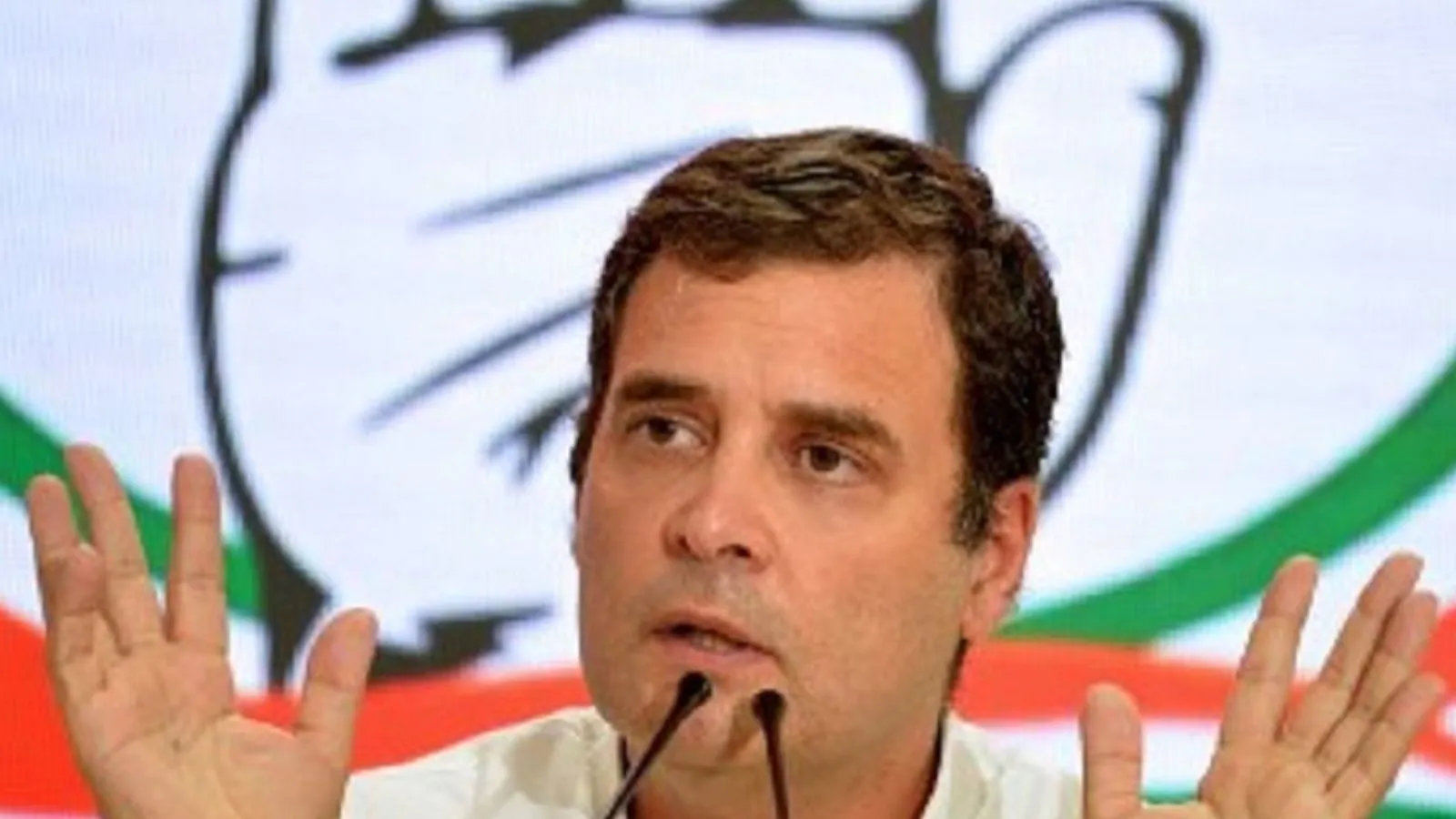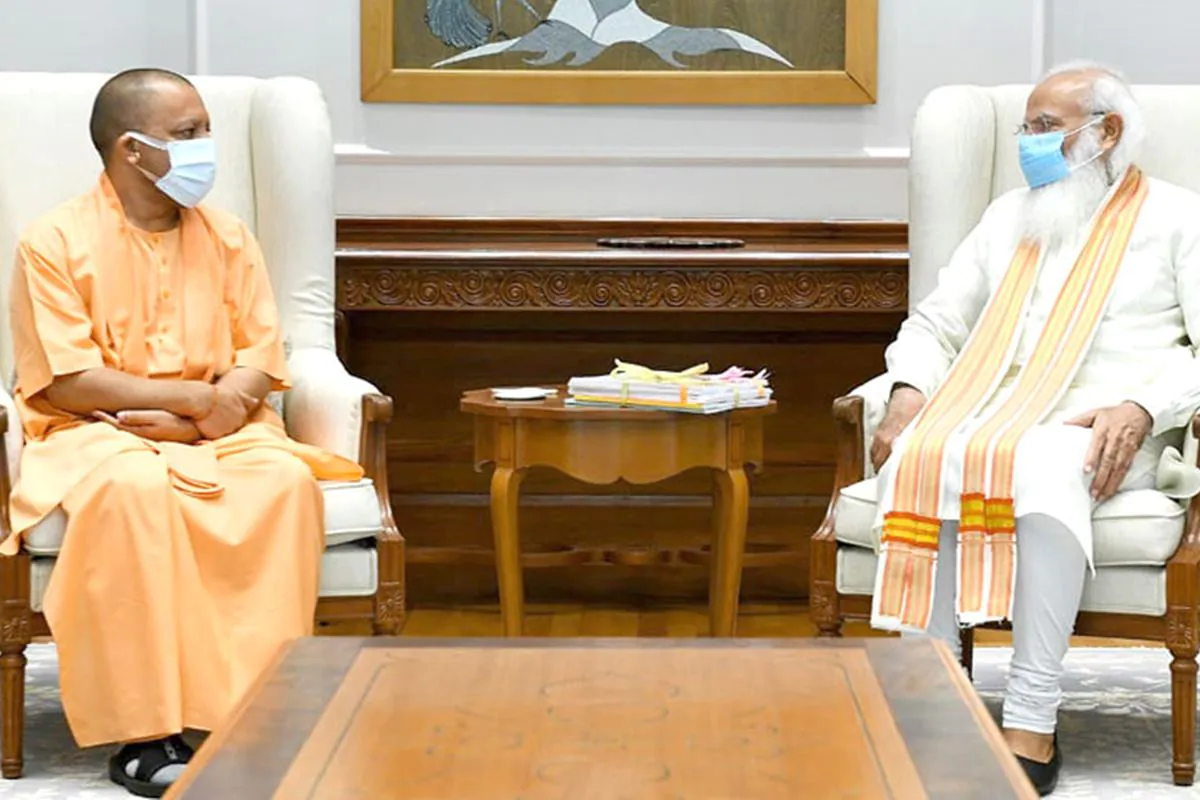CNN
—
India’s ruling Bharatiya Janata Party (BJP) has lost its only stronghold in the country’s south after voters in Karnataka state rejected the Hindu-nationalist policies of Prime Minister Narendra Modi’s party in crucial local elections last week.
Karnataka had been perceived as a “laboratory” for the BJP’s right-wing Hindu-nationalist ideology – known as Hindutva – and some analysts say the defeat is a sign of trouble for Modi as he aims to secure a momentous second decade in power.
The opposition Congress party won 135 seats in the state’s legislative assembly, versus 66 for the BJP, giving Modi’s opponents a boost as they prepare to challenge India’s populist leader in next year’s general election.
On Wednesday, veteran Congress politician Siddaramaiah – who goes by one name – was announced as Karnataka’s new chief minister, ending days of speculation over who will lead the state.
“The Congress has proved it can win a head-to-head battle with the BJP despite the saffron party using Modi as the headliner of its campaign,” wrote The Wire, an independent news outlet, calling the victory “a personal defeat for Modi’s brand of politics.”
The vote in Karnataka was the first of five state elections scheduled for this year, which are often seen as a litmus test for voter sentiment in a national poll.
But despite the heavy loss, Modi’s “national stature remains intact and the BJP ought to be going into the general elections next year as frontrunners,” said Rohan Venkat, non-resident visiting scholar at the Center for the Advanced Study of India, University of Pennsylvania.
“Were they to lose some or all of the remaining state elections this year, including three big states in the (central and northern) Hindi belt, that may be further indication of waning support,” he said.

Around 84% of Karnataka’s 65 million population is Hindu and the BJP campaigned heavily to appeal to that majority.
In recent years, the state has passed legislation rooted in Hindutva, including banning the sale and slaughter of cows – an animal considered sacred to Hindus. It has also passed a controversial anti-conversion bill, which makes it more difficult for interfaith couples to marry.
Last year, Karnataka banned Muslim girls from wearing the hijab in educational institutes. The ban on Islamic headscarves sparked protests from Muslims and deepened religious tensions in the state.
In the lead up to the polls, the BJP proposed removing some benefits from Muslims and allocating them instead to two upper-caste Hindu communities. Though officially abolished in 1950, India’s 2,000-year-old caste system still influences many aspects of life, categorizing Hindus at birth, defining their place in society, what jobs they can do and who they can marry.
While the BJP’s agenda may have been to bank on populist politics, Rahul Verma, a fellow at the Centre for Policy Research (CPR), a leading Indian think-tank, said these ideological platforms ultimately failed to “give them the extra vote.”
The Congress has “managed to resurrect a social coalition” of voters from religious, social and economic minorities, Verma added.
“That’s not to say (the BJP’s) ideological platforms have no takers. But it didn’t help them,” he said. “Your state government hasn’t performed if you do not have strong enough leadership. Those ideological platforms alone can’t lead you to victory.”
Modi himself hit the campaign trail in Karnataka, holding more than a dozen rallies in which he drove through city streets, meeting supporters and delivering rousing speeches.
But his immense popularity nationally failed to translate to BJP votes in the state.
Confining themselves to local issues, the opposition Congress roared ahead, winning on a promise of targeting corruption, combating unemployment and tacking inflation, analysts say.
“It was very clear during the campaign that the incumbent BJP is facing palpable anti-incumbency,” Verma from CPR said. “They didn’t have many things to show on the governance front, and there were allegations of corruption at the highest level.”
Congress has accused the BJP of corrupt electoral practices in Karnataka. Outgoing BJP chief minister Basavaraj Somappa Bommai has repeatedly denied the allegations.
According to Venkat, from the Center for the Advanced Study of India, it has “become clear” that the BJP has “struggled to replicate” its Hindu-majoritarianism at a state level.
He said while the BJP’s Hindu nationalist policies were “seemingly unbeatable” in national elections, the party had failed when “Modi himself is not on the ticket, and when the opponent at the state level can compete with a combination of welfare and regional identity politics.”

The election in Karnataka is the first significant gauge of voter sentiment since Congress leader Rahul Gandhi embarked on a colossal experiment to revive interest in his once powerful party.
In January, Gandhi completed his “Bharat Jodo Yatra” (Unite India Journey), a 4,000-kilometer (2,500-mile) trek across India that took him five months to complete.
The epic journey attracted tens of thousands of followers and boosted the image of Gandhi, a great-grandson of India’s first prime minister.
The state election was also the first face-off between Gandhi and Modi since the former was stripped of his lawmaker status and disqualified from parliament, after he was charged with defamation in an ongoing case that critics have said is politically motivated. Gandhi denies the charges.
Gandhi is one of the few figures that has the kind of star power and name recognition to challenge Modi in next year’s national election – and the Congress win in Karnataka gives the party “a huge morale booster,” said Verma, the analyst.
“It will help them bargain with potential allies and bring them resources that’s needed to build a general election campaign platform,” he said.
But Modi’s party still enjoys huge support in the northern states, including the most populous, Uttar Pradesh.
“A lot would depend on how Congress Party does in upcoming state assembly elections,” Verma said. “And they will have to do really well to be able to carry forward the momentum.”




